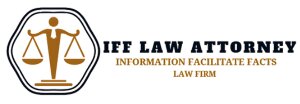Best Housing, Construction & Development Lawyers in Chennai
Share your needs with us, get contacted by law firms.
Free. Takes 2 min.
Free Guide to Hiring a Real Estate Lawyer
List of the best lawyers in Chennai, India
About Housing, Construction & Development Law in Chennai, India
Housing, construction, and development are vital sectors in Chennai, India, with rapid urbanization and a growing population. The laws governing these areas ensure that construction projects adhere to safety standards, property rights are protected, and development projects are carried out efficiently.
Why You May Need a Lawyer
There are various situations where you may require legal help in housing, construction, and development matters. This includes disputes with contractors, property ownership issues, zoning regulations, building code violations, lease agreements, and more. A lawyer specializing in this field can provide valuable guidance and representation to protect your rights and interests.
Local Laws Overview
In Chennai, India, housing, construction, and development laws are governed by the Tamil Nadu Real Estate (Regulation and Development) Rules, 2017, and other relevant regulations. These laws cover aspects such as property registration, land use regulations, building permits, environmental compliance, and dispute resolution mechanisms. It is important to be aware of these laws to ensure compliance and avoid legal issues.
Frequently Asked Questions
1. Can I legally construct a building without obtaining necessary permits in Chennai?
No, it is illegal to start construction without obtaining the required permits from the local authorities in Chennai. Failure to do so can result in fines, penalties, and even demolition of the structure.
2. What are the regulations concerning property ownership and transfer in Chennai?
In Chennai, property ownership and transfer are regulated by the Registration Act, 1908, and the Transfer of Property Act, 1882. It is essential to follow the legal procedures for buying, selling, or transferring property to avoid disputes in the future.
3. How can I resolve disputes with my contractor regarding a construction project in Chennai?
If you have a dispute with your contractor, it is advisable to seek legal assistance. A lawyer can help negotiate a resolution, file a complaint with the appropriate authorities, or take legal action to protect your rights.
4. What are the key responsibilities of landlords and tenants under Chennai's tenancy laws?
Landlords and tenants in Chennai have specific rights and obligations under the Tamil Nadu Buildings (Lease and Rent Control) Act, 1960. These laws govern rent agreements, eviction procedures, maintenance responsibilities, and other aspects of landlord-tenant relationships.
5. How are building code violations addressed in Chennai?
Building code violations in Chennai are addressed through enforcement actions by the Chennai Metropolitan Development Authority (CMDA) and the local Municipal Corporation. Violators may face fines, penalties, and other legal consequences for non-compliance.
6. What are the environmental regulations that impact construction projects in Chennai?
Construction projects in Chennai must comply with environmental regulations under the Environment (Protection) Act, 1986, and the Water (Prevention and Control of Pollution) Act, 1974. These laws aim to minimize the impact of construction activities on the environment and public health.
7. How can I verify the legitimacy of a real estate developer in Chennai?
Before engaging with a real estate developer in Chennai, it is essential to conduct due diligence, check their credentials, verify project approvals, and review customer feedback. Consulting with a legal expert can help you navigate the complexities of real estate transactions.
8. What are the rights of landowners concerning land acquisition for development projects in Chennai?
Landowners in Chennai have legal rights under the Right to Fair Compensation and Transparency in Land Acquisition, Rehabilitation, and Resettlement Act, 2013. This legislation protects landowners from arbitrary acquisition and ensures fair compensation for their land.
9. Can I challenge a zoning decision affecting my property in Chennai?
If you disagree with a zoning decision that affects your property, you have the right to challenge it through the appropriate legal channels. A lawyer can help you navigate the zoning regulations and represent your interests in front of the zoning authorities.
10. How can I protect my intellectual property rights in construction and development projects in Chennai?
Intellectual property rights in construction and development projects in Chennai can be protected through patents, trademarks, copyrights, and other legal mechanisms. It is advisable to seek advice from an intellectual property lawyer to safeguard your innovations and designs.
Additional Resources
For more information on housing, construction, and development laws in Chennai, you can refer to the Chennai Metropolitan Development Authority (CMDA), Tamil Nadu Real Estate Regulatory Authority (TNRERA), Tamil Nadu Housing Board, and relevant government websites. These resources can provide valuable insights and guidance on legal matters related to the real estate sector.
Next Steps
If you require legal assistance in housing, construction, and development matters in Chennai, it is advisable to consult with a qualified lawyer specializing in real estate law. They can offer personalized advice, represent you in legal proceedings, and help you navigate the complexities of property transactions. Remember to research potential lawyers, schedule consultations, and discuss your specific needs before making a decision.
Lawzana helps you find the best lawyers and law firms in Chennai through a curated and pre-screened list of qualified legal professionals. Our platform offers rankings and detailed profiles of attorneys and law firms, allowing you to compare based on practice areas, including Housing, Construction & Development, experience, and client feedback.
Each profile includes a description of the firm's areas of practice, client reviews, team members and partners, year of establishment, spoken languages, office locations, contact information, social media presence, and any published articles or resources. Most firms on our platform speak English and are experienced in both local and international legal matters.
Get a quote from top-rated law firms in Chennai, India — quickly, securely, and without unnecessary hassle.
Disclaimer:
The information provided on this page is for general informational purposes only and does not constitute legal advice. While we strive to ensure the accuracy and relevance of the content, legal information may change over time, and interpretations of the law can vary. You should always consult with a qualified legal professional for advice specific to your situation.
We disclaim all liability for actions taken or not taken based on the content of this page. If you believe any information is incorrect or outdated, please contact us, and we will review and update it where appropriate.









